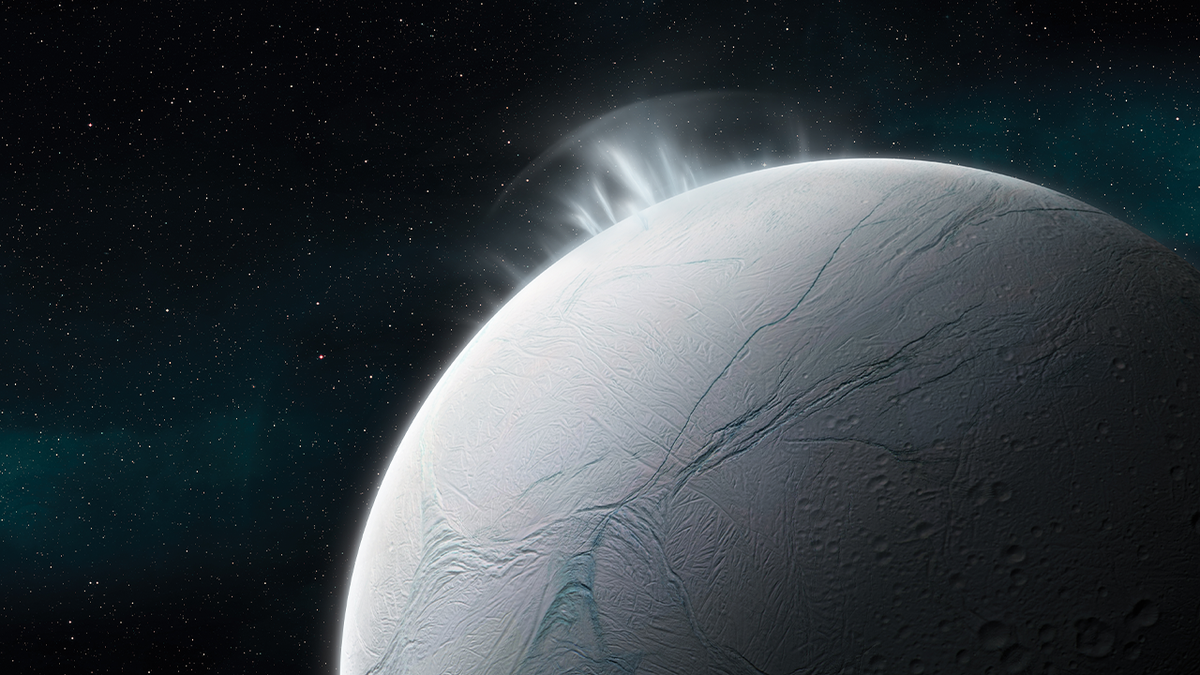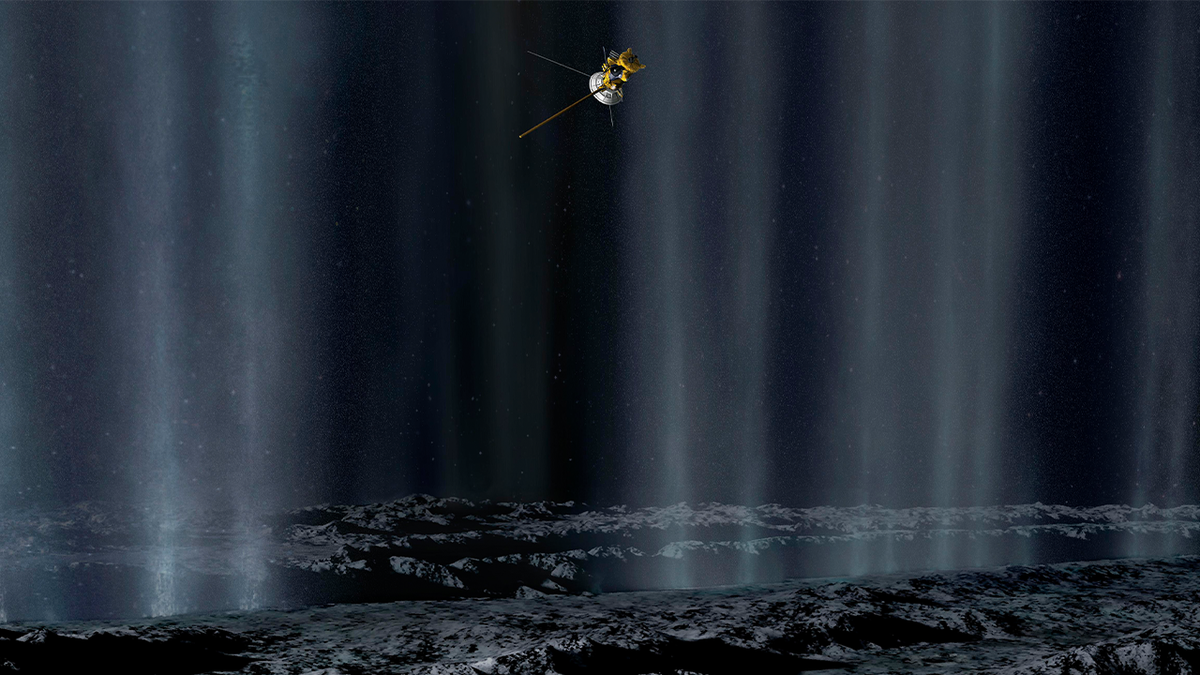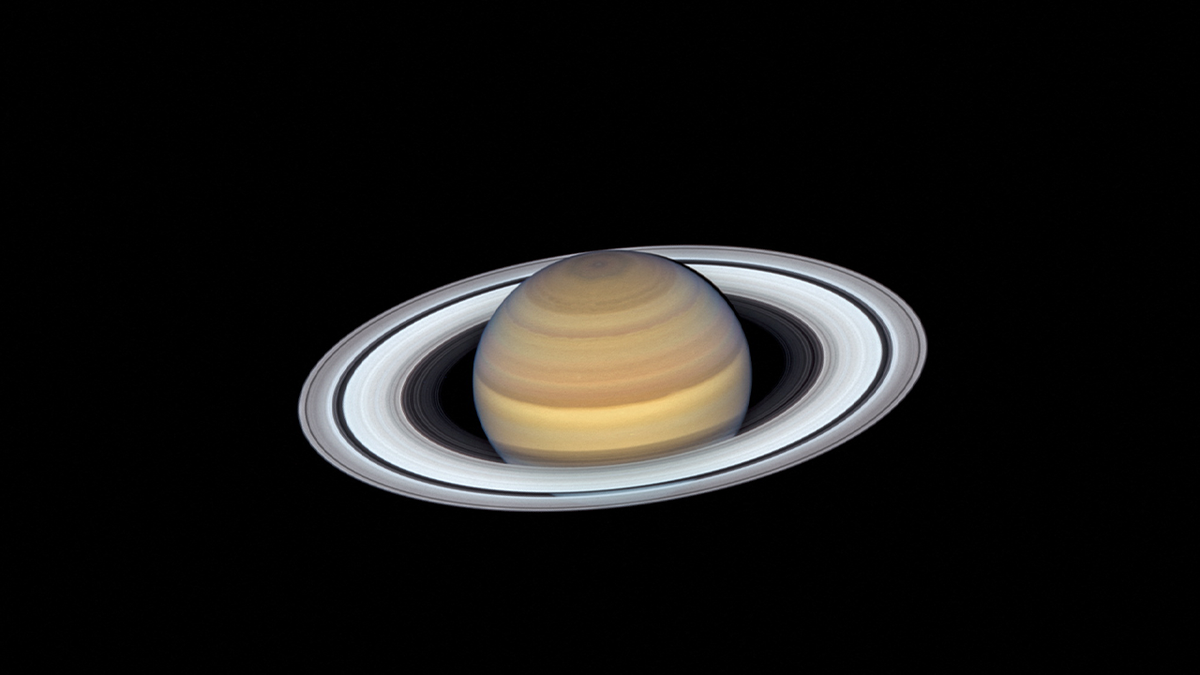A recent study has revealed exciting news about Saturn's moon, Enceladus. Scientists have confirmed the presence of phosphorus, a crucial element for life, within the moon's icy plumes. This groundbreaking discovery adds to the growing evidence suggesting Enceladus possesses the necessary building blocks to support life.
Planetary scientist Frank Postberg highlighted the significance of this finding, stating that it's the first time phosphorus has been detected in an ocean beyond Earth. Previous research had already identified various organic compounds in Enceladus's ocean, but the presence of phosphorus strengthens the possibility of a habitable environment.

An Illustration of vapor plumes erupting from the surface of Enceladus, Saturn's sixth-largest moon.
The discovery was made by analyzing ice grains ejected from Enceladus, collected by NASA's Cassini mission. These grains, originating from the moon's subsurface ocean and erupting through its icy shell, were found to contain phosphorus salts. NASA emphasizes the importance of phosphorus as a key component of DNA, cell membranes, and energy-carrying molecules, essential for all life on Earth.

Artist's concept of the Cassini spacecraft near Enceladus.
This new finding builds upon previous research that identified other elements crucial for habitability in the icy moon, including sodium, potassium, chlorine, and carbonates. The presence of these elements, along with phosphorus, suggests a complex and potentially life-sustaining environment within Enceladus's hidden ocean.

Saturn’s rings as viewed by NASA’s Cassini spacecraft.
While the presence of these essential building blocks is exciting, scientists caution that it doesn't confirm the existence of life on Enceladus. Christopher Glein, a planetary scientist, emphasizes that having the right ingredients doesn't guarantee life. Whether life could have originated in Enceladus's ocean remains an open question, requiring further investigation.
Comments(0)
Top Comments